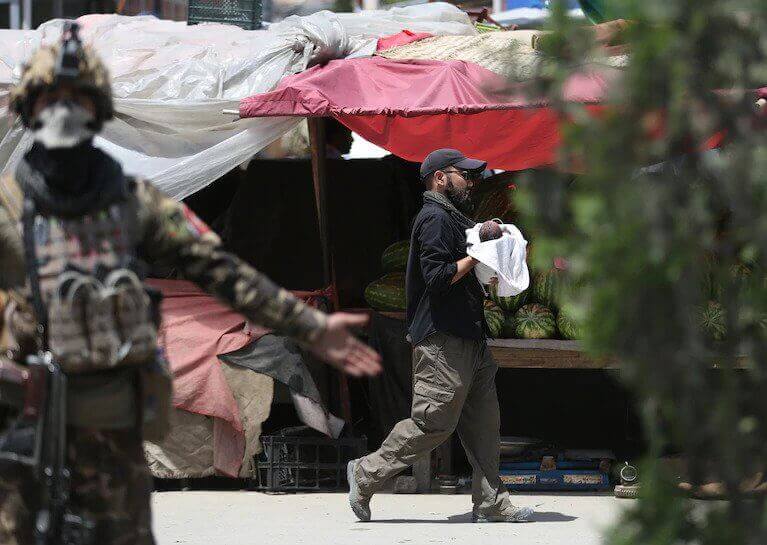On Tuesday, Afghanistan saw two horrific incidents that led to the death of 40 people. In Kabul, gunmen opened fire at the maternity ward of a hospital run by medical charity Doctors Without Borders (MSF), leading to the death of 16 people, including newborns, their mothers, and nurses. In addition, 24 lives in the capital were also lost to a suicide bombing at a funeral.
Security forces had cordoned off the hospital and evacuated more than 80 women and infants, including three foreign nationals before the hour-long-shootout with the gunmen. Interior Ministry Spokesman Tareq Arian called the incident “an act against humanity and a war crime”.
In response to these events, Afghan President Ashraf Ghani called for the resumption of military activity, ordering a full-scale offensive against the Taliban and militant groups. “The Taliban have not given up fighting and killing Afghans, instead they have increased their attacks on our countrymen and public places,” he said.
Clashes between Afghan forces and Taliban fighters have intensified in certain provinces over the past few weeks, despite the historic US-brokered peace deal signed with the Taliban on 29 February. Ignoring international humanitarian calls for peace during the coronavirus pandemic, the Taliban has refused to announce a ceasefire and has continued to attack the country’s security forces in rural areas. However, the outfit has said that it will stop fighting in areas that have been infected by the virus. In Faryab, Governor Naqibullah Faiq claimed that a number of Taliban fighters, who were involved in an attack that killed a dozen Afghan forces and civilians, were infected with COVID-19.
At the same time, Afghan forces have continued to crack down on terrorists and militants, arresting three ISIS members and killing several from the Taliban as well. The continued conflict has also left Afghan service members severely strapped for human and financial resources to aid them at the frontlines in combating COVID-19. More than a third of the country’s confirmed cases in Kabul have been among doctors and medical staff, while millions of dollars and hundreds of people are being deployed to fight opposing forces.
The much-awaited peace talks between Kabul and the Taliban, set to be held between 10 March and 1 April, stalled over the prisoner swap clause of the US agreement. Since Ghani’s government was not a party to it, they offered the conditional release of 1,500 prisoners–rather than 5,000–over reservations about the efficacy of the deal. The pandemic has now delayed these negotiations indefinitely.
Image Source: Washington Post
Gunmen Kill 16 at Maternity Ward, 24 Die from Suicide Bombing in Kabul
The country is struggling to combat the double threat of conflict and COVID-19.
May 13, 2020

